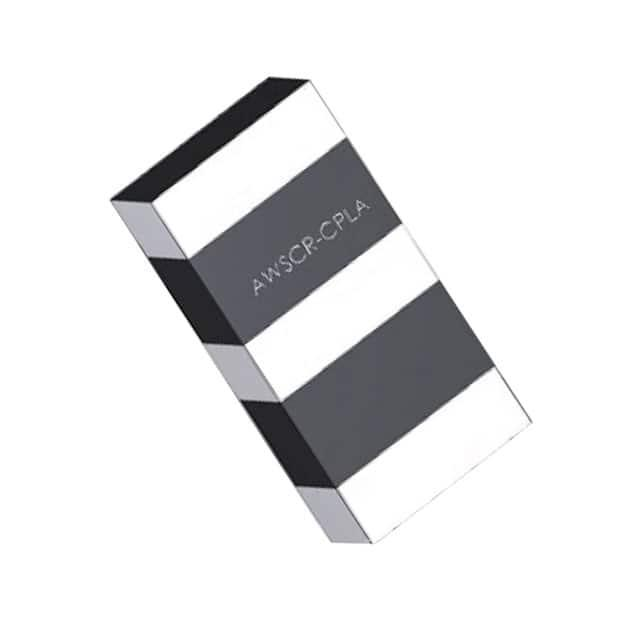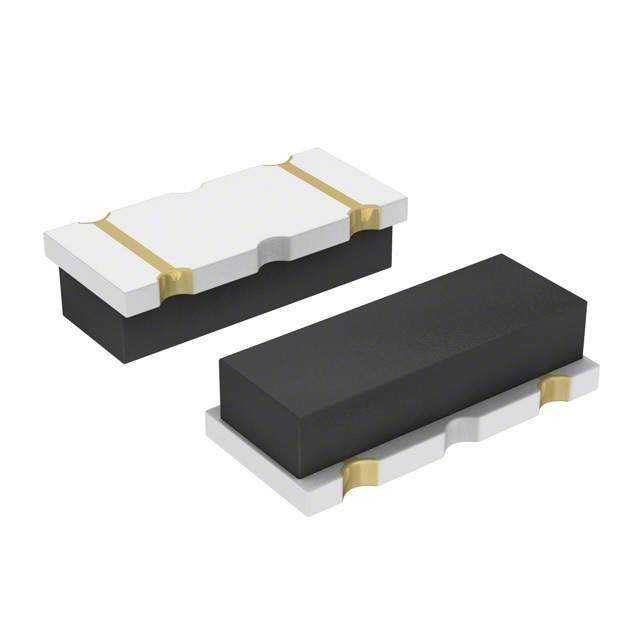Why Choose Ceramic Resonators? Benefits and Key Considerations
Ceramic resonators are fundamental components in the realm of modern electronics, playing crucial roles in timing, filtering, and frequency stabilization. This comprehensive guide explores the benefits of ceramic resonators and the key considerations for selecting and using them in various applications.
1. Introduction to Electronic Resonators
Definition and Purpose:Electronic resonators are devices used to generate or select specific frequencies in electronic circuits. They are essential for ensuring accurate timing and frequency control in a wide range of applications, from consumer electronics to industrial systems. By oscillating at a precise frequency, resonators help stabilize and filter signals, making them indispensable in modern electronic devices.
Key Applications:Electronic resonators are integral to many applications, including:Oscillators: Providing stable clock signals in microcontrollers and processors.Filters: Enhancing signal quality in communication devices by filtering out unwanted frequencies.Frequency References: Used in clocks, watches, and other timing devices to ensure accurate timekeeping.RF and Microwave Systems: Enabling precise frequency generation and selection in wireless communication systems.
2. Understanding Ceramic Resonators
What are Ceramic Resonators?Ceramic resonators are a type of electronic resonator made from piezoelectric ceramic materials. These components vibrate at a specific frequency when subjected to an electric field, making them ideal for timing and frequency control applications. They are widely used due to their cost-effectiveness, compact size, and reliable performance.Working Principle:Ceramic resonators operate on the principle of piezoelectricity, where an electric field applied to a piezoelectric material induces mechanical vibrations. These vibrations occur at a natural resonant frequency determined by the physical dimensions and properties of the ceramic material. The resulting oscillations can be used to stabilize and filter electronic signals.Comparison with Other Resonators:Ceramic Resonators vs. Quartz crystals: While both are used for frequency control, ceramic resonators are generally more cost-effective and compact than quartz crystals. However, quartz crystals offer higher precision and stability, making them suitable for applications requiring extremely accurate timing.Ceramic Resonators vs. LC Circuits: LC circuits (comprising inductors and capacitors) can also generate resonant frequencies but tend to be larger and less stable compared to ceramic resonators. Ceramic resonators provide a more reliable and compact solution.
3. Applications of Ceramic Resonators
Consumer Electronics:Ceramic resonators are commonly found in consumer electronic devices such as:Remote Controls: Providing stable frequencies for reliable signal transmission.Televisions and Radios: Ensuring accurate tuning and signal processing.Gaming Consoles: Stabilizing clock signals for processors and other components.
Automotive Industry:In the automotive sector, ceramic resonators are used in:Engine Control Units (ECUs): Providing precise timing for engine management systems.Infotainment Systems: Ensuring stable operation of audio and video components.Keyless Entry Systems: Enhancing the reliability of wireless communication between the key fob and vehicle.
4. Design Considerations for Ceramic Resonators
Frequency Selection:When selecting a ceramic resonator, it is crucial to choose one that matches the desired frequency range of your application. Consider factors such as the required precision, operating environment, and potential frequency drift over time.
Environmental Factors:Ceramic resonators can be affected by environmental conditions such as temperature and humidity. Ensure that the chosen resonator is rated for the operating conditions of your application to maintain reliable performance.
Integration with Circuits:Integrating ceramic resonators into electronic circuits requires careful consideration of the circuit layout and component placement. Proper grounding and shielding techniques can help minimize interference and ensure stable operation.
5. Technological Advances in Ceramic Resonators
Material Innovations:Recent advancements in ceramic materials have led to improved performance characteristics, such as higher stability and lower aging rates. These innovations enhance the reliability and lifespan of ceramic resonators in various applications.
Manufacturing Processes:Advances in manufacturing processes have enabled the production of ceramic resonators with tighter tolerances and higher precision. These improvements contribute to more consistent performance and greater application versatility.
6. Choosing the Right Ceramic Resonator
Key Specifications:When selecting a ceramic resonator, consider the following key specifications:Frequency Range: Ensure the resonator covers the required frequency range for your application.Tolerance: Choose a resonator with appropriate frequency tolerance to meet the accuracy needs of your design.Operating Temperature: Verify that the resonator can operate reliably within the expected temperature range of your application.Aging Rate: Consider the long-term stability of the resonator, especially for applications requiring precise timing over extended periods.
Top BrandsWhen selecting ceramic resonators, it's important to consider reputable brands known for their quality and reliability. Here’s a closer look at some of the top brands in the industry:
ABRACON:Reputation: ABRACON is widely recognized for its extensive range of reliable and efficient resonators. The company has a strong track record of providing high-quality timing devices that meet the diverse needs of various industries.

Product Range: ABRACON offers a comprehensive portfolio of ceramic resonators, including both standard and custom solutions. Their products are designed to cater to a wide array of applications, from consumer electronics to industrial systems.Innovations: The company continually invests in research and development to introduce innovative resonator technologies. ABRACON's resonators are known for their precision, stability, and durability, ensuring optimal performance in critical applications.AVX:Reputation: AVX is a leading manufacturer of advanced electronic components, including ceramic resonators. The company is known for its high-quality products and commitment to innovation, making it a trusted name in the industry.

Product Range: AVX offers a diverse selection of ceramic resonators designed for various applications. Their product line includes standard resonators as well as custom solutions tailored to specific customer requirements.Technological Advancements: AVX is at the forefront of technological innovation, continuously improving the performance and capabilities of their ceramic resonators. They focus on enhancing features such as frequency stability, tolerance, and environmental resistance.
unikeyic Electronics:Reputation: As a leading distributor of electronic components, Unikeyic Electronics offers an extensive inventory of ceramic resonators from top brands like ABRACON and AVX. They are known for their reliable supply chain and excellent customer service.Product Availability: Unikeyic Electronics ensures that a wide range of ceramic resonators are available in stock, allowing customers to find the exact products they need without long lead times. This is particularly beneficial for urgent projects and large-scale production runs.Value-Added Services: Unikeyic Electronics provides free samples to customers, enabling them to test products before making a purchase. Additionally, they offer competitive pricing for bulk purchases, making it cost-effective for companies to source high-quality resonators.Customer Commitment: Unikeyic Electronics is dedicated to providing outstanding support to their customers. They offer personalized assistance in product selection, technical advice, and logistics, ensuring a smooth and efficient purchasing experience.
Conclusion
Ceramic resonators offer numerous benefits, including cost-effectiveness, compact size, and reliable performance, making them an excellent choice for a wide range of electronic applications. By understanding their working principles, advantages, and key considerations, you can make informed decisions when selecting and integrating ceramic resonators into your designs. With top brands like ABRACON, AVX, and distributors like Unikeyic Electronics, you can ensure the highest quality and performance for your electronic projects.






















